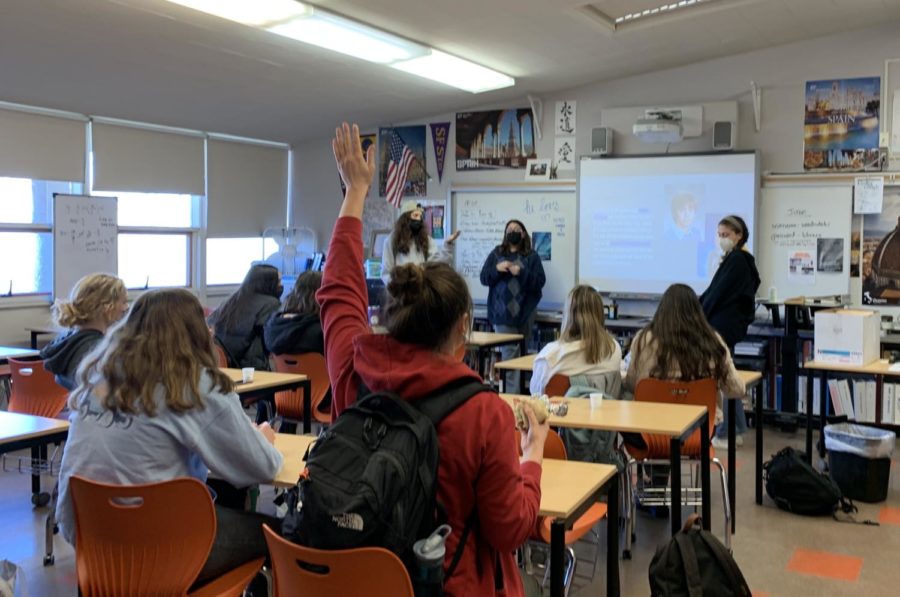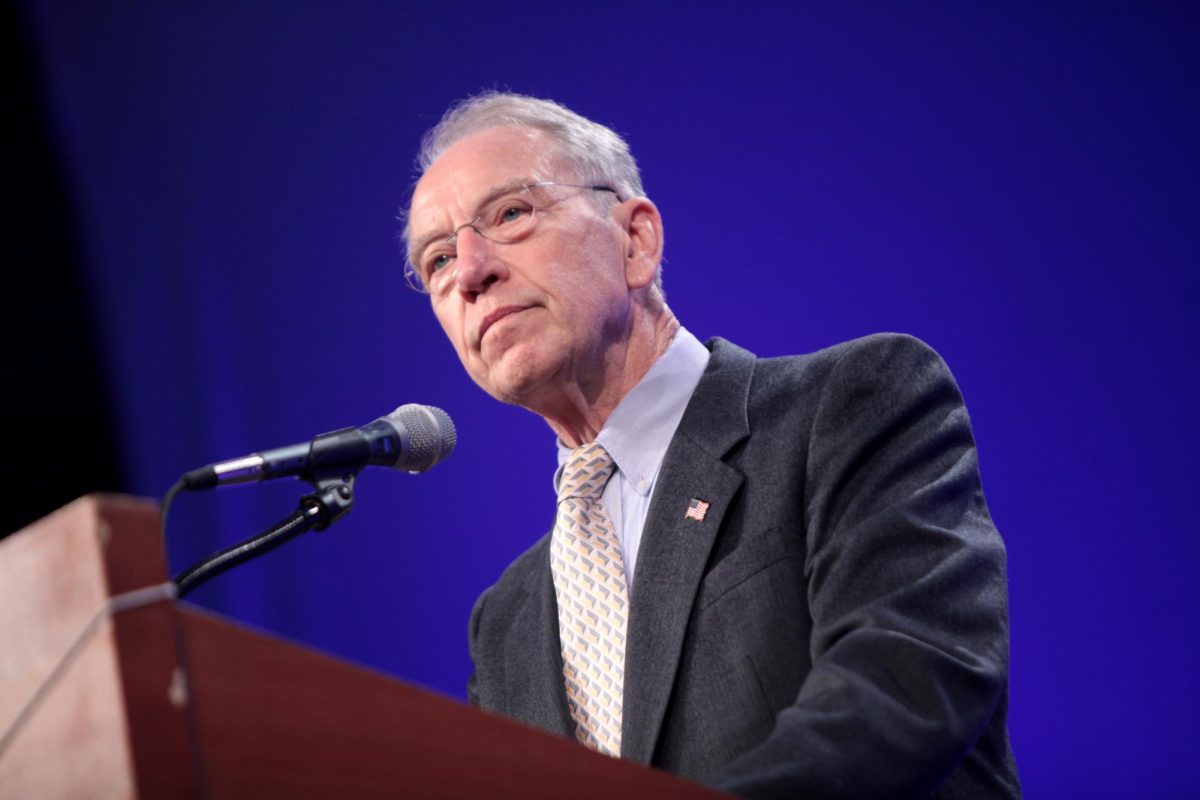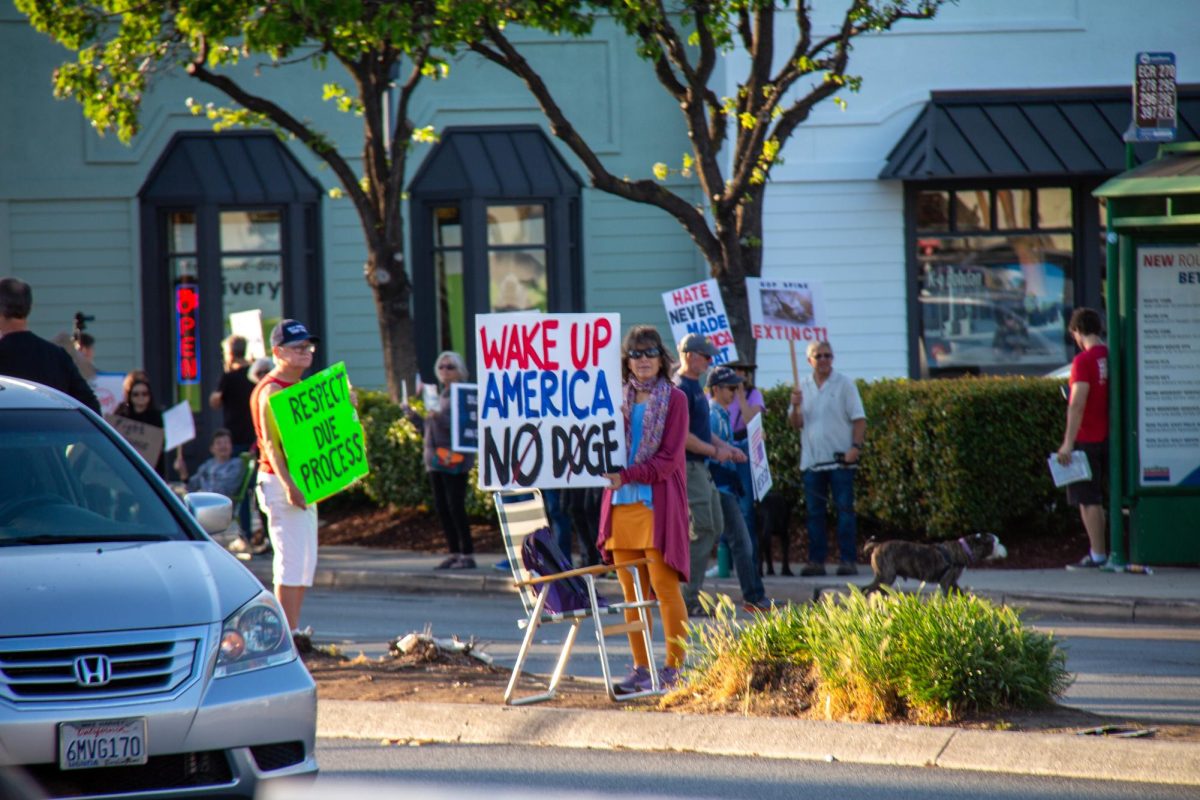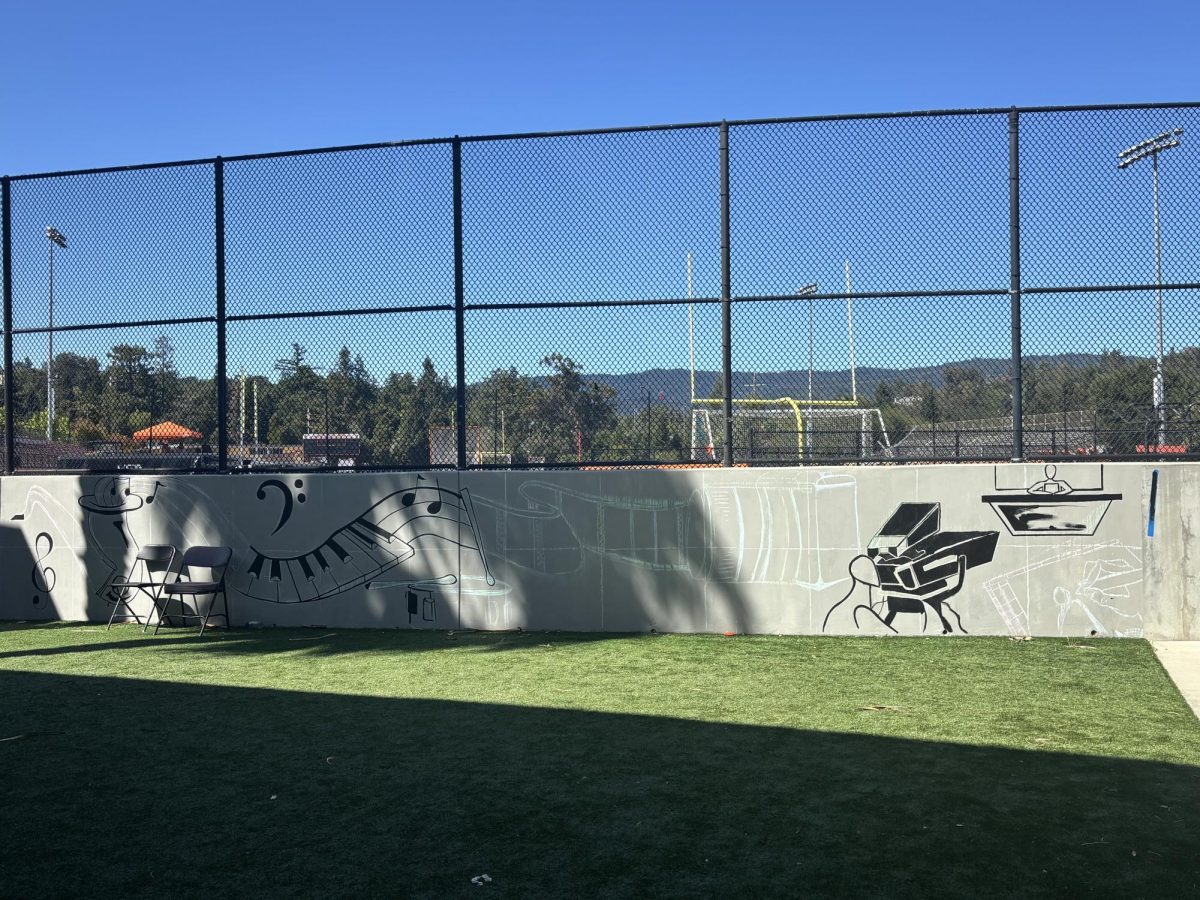While Woodside students generally have many opinions, politics seems to be the one subject where student involvement varies; some avidly participate because they’re passionate about our political climate, whereas others avoid it as much as possible.
Young people typically don’t participate in politics, perhaps due to less experience in politics, simply due to age, or the fear that their opinions won’t be respected in political discussions. However, some young people do choose to participate in politics, taking advantage of opportunities that let them voice their opinions and make practical contributions to their communities. Woodside has a spectrum of student involvement in politics, ranging from students like Woodside senior Carlos Osuna, who volunteered extensively for the Biden campaign, to Woodside sophomore Sean Bratton, who chooses to stay far away from politics.
Ramie Macioce teaches government at Woodside, so she’s fully immersed in the political world. Students learn about the foundations of America’s government and democracy, which remains relevant in modern-day politics. The discussions that students have in and out of class will prepare them for the difficult political conversations that inevitably arise later in life.
“Government is a senior class, so many are heavily influenced by what goes on in their house and in their community,” Macioce said. “But a lot of students will leave this area and go to different parts of the country and world for college. I hope that they’ll take this foundation and hopefully build their own views.”
However, Woodside students don’t seem to care much, nor participate much, in politics.
“I have a busy schedule with school and extracurriculars, so I don’t really have the time to participate actively in politics,” Woodside sophomore Melia Orozco said.
Macioce sees the same lack of political participation in her students.
“I would say that for the most part, Woodside students don’t care about politics,” Macioce said. “Young people, especially high school students, have so much other stuff going on that politics is kind of put on the backburners.”
Bratton brings up another reason why students might not want to actively participate in politics.
“I choose to stay away from politics because I feel like it’s too complicated and in my experience, it almost always ends up in a shouting match,” Bratton said.
However, those interviewed agree that political participation, especially from young people, can only benefit students.
“I do believe that young people should be involved in politics, as their involvement in politics is vital to establishing a desirable future for themselves and generations to come,” Woodside junior class president Lorenzo Pepe said.
Many Woodside students will turn 18 before the next presidential election, and as they reach voting age, they put more effort into engaging in politics.
“I do try to stay updated about politics, and I try to educate myself so that when I can vote in a few years, I know what I’m voting for,” Orozco said.
Often, students fear entering the political world.
“People my age maybe feel like they’re too young to have to worry about complicated subjects like politics,” Woodside freshman Madeline Lee said. “Also in social situations or discussions having the ‘wrong’ opinion can be embarrassing.”
Despite this fear, politics has become more and more accessible, especially with the support of other young people.
“During the 2020 cycle, I volunteered for the Biden campaign in multiple capacities,” Osuna said. “The forefront of that being my involvement in the high school branch of his campaign. I worked on outreach for California high schoolers who wanted to be more engaged and helped run the official California High Schoolers for Biden branch.”
Woodside’s government class provides students with a landing ground for them to form their political opinons. Still, that class can bring controversy, as students with differing viewpoints clash.
“When controversy arises, I make sure students know that everybody’s voice matters and that they’re listening and not just discounting other people’s opinions,” Macioce said. “You have to learn how to have mature, productive discussions about them in high school.”
Bratton also feels that political discussions in class can help students, despite not actively seeking political interactions.
“In class, more recently we’ve discussed politics, but I think it should be discussed more in the future so we can be more open-minded, look at things from other perspectives, and learn to compromise on political issues,” Bratton said.
Discussions in classes like Woodside’s freshman Ethnic Studies can also benefit students.
“I would value political conversations in class,” Lee said. “I feel like it’s hard to learn more about politics by yourself when the Internet and social media can misguide you so easily.”
Moreover, students’ political opinions matter and many have found that their peers are willing to hear them out.
“It’s easy to voice my opinion among peers and those older than me given that the WHS community is a very accepting environment, so I rarely feel intimidated when doing so,” Pepe said.
Students also have the opportunity to participate in politics at a micro-level with school politics. The BOSA elections are on Wednesday, March 16th, and students may announce their candidacies now! To run, students must have a cumulative GPA of 2.0 or above and submit fifty signatures prior to announcing. Visit http://bit.ly/whsbosa to learn more! Additionally, for each grade, there is a dedicated Instagram page where important information is posted. Students can also DM that account to contact class officers with questions and concerns.
“Class board meetings are a feasible method for people to get important school information that is shared,” Pepe said. “People can voice their opinions and ask questions to their respective class officers.”
Class boards are on Wednesdays for all grades; freshmen meet in E-15, sophomores meet in E-13, juniors meet in E-5, and seniors meet in E-9.
Beyond Woodside, Osuna finds that other politically active young people, for the most part, create a welcoming environment for productive political conversations.
“I think that our generation, Gen Z, is wonderfully politically engaged and that makes me feel more comfortable in engaging in political conversation with other people my age,” Osuna said.
Macioce further encourages political participation for young people in any form, big or small. Anyone can get involved, and any participation is still participation.
“If you start [engaging in politics] young, then it will follow you the rest of your life and it eventually just becomes who you are,” Macioce said. “The younger the person is involved in their community and cares about what’s going on in the world, the better. They learn that you can’t just sit back and that you have to have your voice heard through your actions.”












